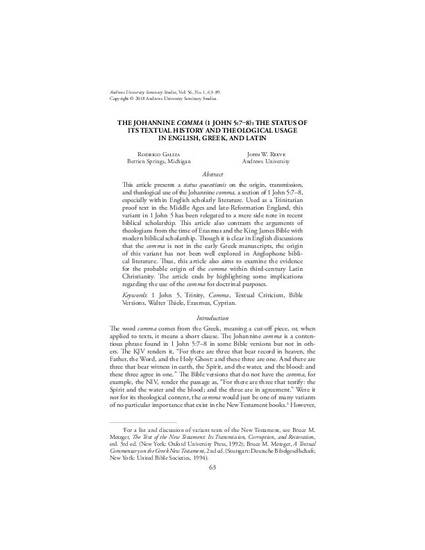
This article presents a status quaestionis on the origin, transmission,and theological use of the Johannine comma, a section of 1 John 5:7–8,especially within English scholarly literature. Used as a Trinitarian proof text in the Middle Ages and late-Reformation England, this variant in 1 John 5 has been relegated to a mere side note in recent biblical scholarship. This article also contrasts the arguments of theologians from the time of Erasmus and the King James Bible with modern biblical scholarship. Though it is clear in English discussions that the comma is not in the early Greek manuscripts, the origin of this variant has not been well explored in Anglophone biblical literature. Thus, this article also aims to examine the evidence for the probable origin of the comma within third-century Latin Christianity. The article ends by highlighting some implications regarding the use of the comma for doctrinal purposes.
Available at: http://works.bepress.com/john_reeve/27/
